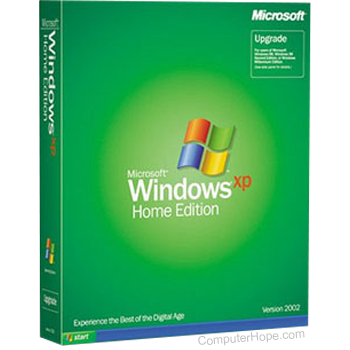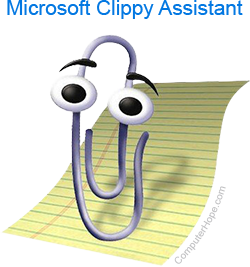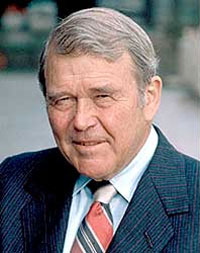Computer history - 2001
Major computer events in 2001

Apple introduced macOS X 10.0 code-named Cheetah, which became available on March 24, 2001.
Microsoft Windows XP home and professional editions were released on October 25, 2001.
2001 computer and technology top terms
The following are some top computer and technology-related terms in alphabetical order that were introduced or popularized during 2001.
New computer products and services introduced in 2001
On January 4, 2001, Linus Torvalds released version 2.4 of the Linux kernel source code that introduced hot plugging and other features.
The first known implementation of the holy grail layout using only CSS (cascading style sheets) was published on Glish.com (no longer active) in February 2001.
McAfee released the first handheld virus protection software on March 9, 2001.
The Sierra game Tribes 2 went gold on March 19, 2001.
Apple started putting up Genius Bars in its stores in May 2001.
The game Anarchy Online from Funcom went gold on June 11, 2001.
Google introduced Google Earth on June 11, 2001.
Google Image Search was introduced, offering access to 250 million images in July 2001.
Bram Cohen introduced BitTorrent on a public message board on July 2, 2001.
On July 23, 2001, Max Payne, a third-person shooter video game, was released for the PC by Gathering of Developers. The game had an excellent reception and received multiple awards for Best PC Game, Best Game 2001, Best Graphics in a Game, Best Computer Game of the Year, Editor's Choice, and others. Two sequels were released in 2003 and 2012, and in total, the game series sold more than 7.5 million copies worldwide.
Lindows OS (operating system) (later Linspire) was founded by Michael Robertson in August 2001.
Microsoft released Internet Explorer 6.0 on August 27, 2001.
Compaq introduced the Compaq Presario line of computers on August 27, 2001.
Blizzard announced World of Warcraft on September 02, 2001.
Apple introduced macOS X 10.1, code-named Puma, and became available on September 25, 2001.
On September 25, 2001, XM Radio released its service to the public.
Apple introduced the iPod and the first Apple earbuds on October 23, 2001.
Grand Theft Auto III was released for the PS2 and Xbox on October 23, 2001, by Rockstar North.
In October, IBM announced the eServer p690 ("Regatta") as the world's most powerful Unix server, a five-year effort to deliver a new class of Unix system.
VIA introduced the Mini-ITX and the first ITX (information technology extended) motherboard form factor in November 2001.
Microsoft released the original Xbox game console on November 15, 2001.
Bungie released the game Halo for the Xbox gaming system on November 15, 2001, launching the start of a multi-billion dollar video game franchise. The Halo series experienced unprecedented success, including multiple game sequels and expansion to other markets, like books, toys, clothing, television and web video series. It was hailed as one of the best first-person shooter games for video game consoles.
Microsoft released Word for PC in 2002 in 2001.
Microsoft released Excel 2001 for Mac in 2001.
Microsoft released Word X for Mac in 2001.
Rhapsody was released in December 2001.
Microsoft Windows XP 64-bit edition (version 2002) for Itanium systems was released.
Microsoft released FrontPage 2002 in 2001.
SOS Online Backup was rebranded as Infrascale in 2001.
Microsoft SharePoint was introduced in 2001.
CompTIA acquired "IT Project+" in 2001 and introduced its Project+ project management certification. Also, in 2001, CompTIA introduced its Server+ certification.
The first WCDMA (Wideband Code Division Multiple Access) network, called FOMA (Freedom of Mobile Multimedia Access), was launched in Japan.
Development versions of OpenOffice.org were released for Linux and Windows with a macOS X version that works with X-11.
The first iSCSI storage device was introduced for use with the Windows NT, 2000, and Linux operating systems in 2001 by IBM.
The Kylin operating system was invented for use by the Chinese military.
OCTAVE (operationally critical threat, asset, and vulnerability evaluation) was introduced.
Pivot, which became PivotX began development in 2001.
Processing was released in 2001 by developers Casey Reas and Ben Fry.
In 2001, VMware entered the server market by releasing VMware GSX Server and VMware ESX Server.
YAML (YAML Ain't Markup Language) was first proposed by Clark Evans in 2001.
The website YTMND started in 2001.
ZFS was developed at Sun in 2001.
Computer and technology-related events in 2001
IntelliJ IDEA, an integrated development environment, was released for Windows, macOS X, and Linux in January 2001.
On January 1, 2001, Microsoft announced Windows 95 was now a legacy item and would no longer be sold or shipped to any more customers.
On January 2, 2001, Intel announced it would recall its 1.13 GHz Pentium III processors due to a glitch.
Apple released iTunes on the Mac on January 9, 2001.
Napster reached over 26 million users by February 2001.
The V.92 modem standard on February 27, 2001.
On March 8, 2001, AOL (America Online) memberships surpassed 28 million.
The Mir Russian space station re-entered Earth's atmosphere on March 23, 2001, and broke up after 15-years in space.
IBM released its z/OS 64-bit operating system on March 30, 2001.
The HyperTransport standard was introduced by AMD on April 2, 2001.

On April 11, 2001, Microsoft announced it would no longer include Clippy in future releases of Microsoft Office.
MSN (Microsoft Network) reached the 5 million user mark.
The ATA-6 standard was approved by ANSI (American National Standards Institute) on May 16, 2001, under document NCITS 347-2001.
Transmeta licensed key technologies like HyperTransport from AMD on May 25, 2001.
Jan de Wit, aka OnTheFly, was convicted for the Anna Kournikova virus on May 27, 2001.
On June 5, 2001, Nevada became the first U.S. state to vote to legalize online gambling.
Initio Corp. acquired ConnectCom (formerly AdvanSys) on June 18, 2001.
On June 23, 2001, Iomega slashed 800 to 1,100 jobs worldwide and announced plans to relocate its headquarters to the West Coast.
As of June 2001, Whagent had been installed on over seven million computers.
The Code Red worm began infecting Windows computers in July 2001 to perform a DDoS (Distributed Denial of Service) attack on the White House government web page. Code Red infected computers by exploiting a vulnerability in Windows NT and 2000, causing a buffer overflow. The worm was estimated to have caused $2 billion in damages despite failing in its intended attack.
On July 20, 2001, it was announced that PC (personal computer) shipments were the worst since 1986, as only Dell grew.
SATA (Serial AT Attachment) 1.0 was introduced in August 2001.
The phrase "deep web" was coined by Mike Bergman, founder of data collection service Bright Planet, in August 2001.
The Trojan Room coffee machine and the first Internet webcam went offline on August 22, 2001.
On September 11, 2001, terrorists coordinated four attacks across America. During the attacks, so many people were trying to visit online news sites that bottlenecks were created, causing most news sites not to load.
Hewlett-Packard acquired Indigo on September 11, 2001.
The Klez virus was introduced in October 2001.
On October 9, 2001, AMD announced a new branding scheme. Instead of identifying processors by its clock speed, the AMD XP bears monikers of 1800+, 1700+, 1600+, and 1500+, with each lower model number representing a lower clock speed.
The 30th anniversary of the microprocessor was on November 15, 2001. In those 30 years, the processor's speed increased more than 18,500 times, from 0.108 MHz to 2 GHz.
On December 02, 2001, Toshiba announced it would stop selling desktop computers in the United States and focus on mobile computing and servers.
Dean Kamen unveiled the Segway on December 3, 2001.
The "Goner" virus was first discovered on December 4, 2001, eventually causing an estimated $80 million in damage.
IBM started the Eclipse project in 2001.
Nimda, the fastest-spreading computer virus in history, was released in 2001.
The CDDB (compact disc database) was officially renamed to Gracenote in 2001.
One of the first CAPTCHA (Completely Automated Public Turing test to tell Computers and Humans Apart) was the Gausebeck-Levchin test, a security measure created by Max Levchin and utilized by PayPal in 2001.
The Chatterbox challenge was first held 2001.
Corel Linux was discontinued in 2001.
Mindscape was formed as its own company again.
Airlines began to implement methods of gaining Internet access while flying.
Regional Coding Enhancement was a type of DVD (digital versatile disc) region code introduced in 2001 that attempted to make region-restricted DVDs unplayable, even on region-free DVD players. Fewer than a hundred movies used this enhancement before it was abandoned.
USB (universal serial bus) 2.0 was introduced in 2001.
The Agile Manifesto, which served as an outline for agile development methods, was introduced in 2001.
One of the earliest uses of CAPTCHA was the Gausebeck-Levchin test, a security measure created by Max Levchin and utilized by PayPal in 2001.
WiMAX (Worldwide Interoperability for Microwave Access) standard was published in 2001.
Computer companies and organizations founded in 2001
Wikipedia was founded on January 15, 2001.
JMicron Technology was founded in September 2001.
OWASP (Open Worldwide Application Security Project) was founded on December 1, 2001.
ADATA was founded in 2001.
Arctic was founded in 2001.
BitDefender was founded in 2001.
Dyn was founded in 2001 by Tom Daly, Jeremy Hitchcock, Chris Reinhardt, and Tim Wilde.
Mailchimp was founded in 2001 by Ben Chestnut and Dan Kurzius.
Newegg was founded in 2001.
Redpine Signals was founded in 2001.
Rockchip was founded in 2001.
Roxio was founded in 2001.
Sapphire was founded in 2001.
Sapphire Technology was founded in 2001.
Soft Trading was founded in 2001. The company would later become SteelSeries.
ZDTV was purchased by Paul Allen and renamed to TechTV in 2001.
Thermalright was founded in 2001.
Trekstor was founded in 2001.
Xandros was founded in 2001.
Computer company events in 2001
Infogrames acquired the video game unit of Hasbro Interactive in January 2001.
FASA closed its doors on January 25, 2001. BattleTech and Shadowrun properties were sold to Wizkids LLC.
Adobe acquired Accelio Corp. on February 03, 2001.
Efficient Networks was acquired by Siemens for $1.5 billion on February 22, 2001.
Palm continued its push into the mobile enterprise space by announcing the acquisition of Extended Systems on March 07, 2001. Palm said paid $22 per share of Extended Systems stock, with the full transaction valued at about $264 million.
Upon completing the merger between Caldera and SCO, the combined company changed its name to Caldera International on March 29, 2001.
Google made its first public acquisition, Deja.com's Usenet service, on February 13, 2001, which became Google Groups.
Phoenix acquired Integrity Sciences on February 27, 2001.
Novell acquired Cambridge technology partners on March 13, 2001.
Electronic Arts purchased Pogo.com in March 2001.
On March 24, 2001, Micron Electronics announced it was selling its computer operations.
After 21 years of selling hard drives, Quantum sold its hard drive business to Maxtor to turn its full attention to higher-level storage products and services on March 31, 2001.
Avaya announced its acquisition of Quintus Corporation in April 2001.
On April 20, 2001, Dell became the largest PC maker.
Ectiva went out of business in May 2001.
On July 17, 2001, Corel purchased Micrografx Inc. in a stock-for-stock transaction.
Cabletron Systems completed its transformation into two independent companies, Enterasys and Riverstone, on August 6, 2001.
Titus Interactive announced it had taken control of Interplay on August 16, 2001.
Egghead filed for bankruptcy protection on August 18, 2001.
Sony pulled the plug on its eVilla Internet appliance on September 03, 2001.
Hewlett-Packard announced plans to buy Compaq on September 6, 2001.
Acer Peripherals (Acer CM) changed its name to BenQ on December 1, 2001.
Amazon.com bought the Egghead.com domain on December 9, 2001.
On December 29, 2001, eMachines received a NASDAQ warning about a possible delisting of its stock, as the company struggles to pump up slowing sales and its sagging stock price.
In December 2001, Roxio acquired MGI Software.
3DFX announced plans on dissolving the company in 2001.
AST Computers went out of business and stopped selling computers in 2001.
BSDi (Berkeley Software Design, Inc.) was sold to Wind River Systems in 2001 and renamed to iXsystems.
Expedia broke off from Microsoft in 2001.
Chip-making giant Intel agreed to acquire Xircom Inc., a maker of mobile computing gear, for about $748 million.
Fast Multimedia was purchased by Pinnacle in 2001.
Gemlight Computer Ltd. went out of business in 2001.
Logitech bought Labtec for approximately $125 million in 2001.
Internet domains that came online in 2001
The domain wikipedia.org came online on January 13, 2001.
The domain Stumbleupon.com came online on November 4, 2001.
Discontinued products and services in 2001
Intel discontinued the Socket 423 in August 2001, replacing it was the Socket 478.
Registered DIVX (digital video express) customers stopped being able to view their discs after the service was terminated in 2001.
Intel shifted its focus primarily to DDR SDRAM from RDRAM (Rambus Dynamic Random-Access Memory) in 2001.
Computer pioneer deaths in 2001

William Hewlett passed away on January 12, 2001 (Age 87).
Tom Kilburn passed away on January 17, 2001 (Age: 79).
Herbert Simon passed away on February 9, 2001 (Age: 85).
Claude Elwood Shannon passed away on February 24, 2001 (Age: 85).
Jim Ellis passed away on June 28, 2001 (Age: 45).
Nathan Rochester passed away on June 8, 2001 (Age: 82).
Robert Floyd passed away on September 25, 2001 (Age: 65).
Peter Elias passed away on December 7, 2001 (Age: 78).
